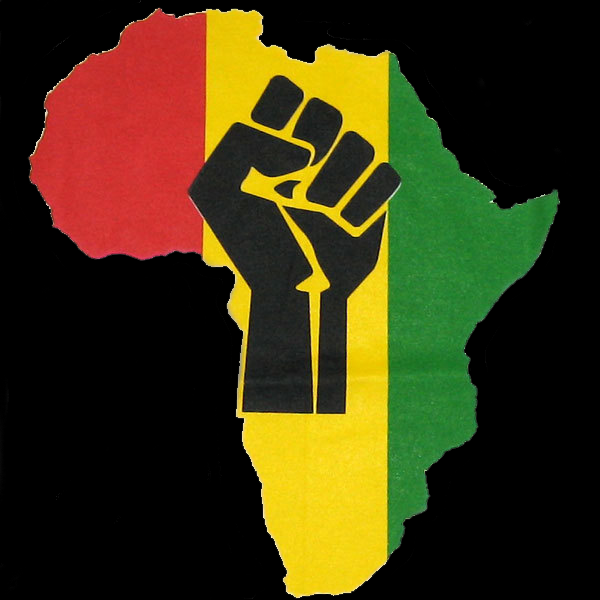By Cameron Hassan
Frederick Douglass's assertion that "power concedes nothing without a demand" serves as a foundation for understanding how systems of oppression operate, particularly in the U.S. political landscape. The 2024 election exemplifies how power responds to the demands of marginalized communities, often attempting to pacify them through symbolic gestures rather than meaningful change. This dynamic is especially evident in the liberal backlash against those who chose to vote third-party or abstain altogether, blaming them for failing to support Kamala Harris, a candidate portrayed as the "lesser of two evils." However, this narrative obscures a crucial point: many of these voters made a moral demand by resisting participation in a system that perpetuates imperialism, militarism, and state violence. Rather than endorsing a candidate complicit in these systems, they chose to abstain or support third-party candidates, an act that should be understood as a demand for a political system that offers genuine alternatives to oppression.
The framing of the 2024 election illustrates what can be described as vertical morality, which is a hierarchical framework in which moral worth is attached to symbolic representation and allegiance to authority at the top, such as Harris's status as potentially the first Black woman president. Vertical morality allows for a politics of optics, where individual achievements are celebrated while systemic injustices remain unaddressed. It provides comfort to those who prioritize representation and obedience to power over substantive change, allowing them to believe that progress is being made, even as imperialism, racism, and state violence persist. In contrast, horizontal morality calls for a collective pursuit of justice. It rejects the notion that individual achievements at the top or following authoritarian rule supported by passive mass acceptance can substitute for meaningful progress at the base. Horizontal morality demands a dismantling of systems that oppress and exploit marginalized communities, focusing instead on solidarity and mutual accountability. It asks not, "Who is in power?" but "What structures of power must be dismantled for true justice to be achieved?"
Frantz Fanon's work on colonial psychology offers critical insight into how liberal voters rationalize their support for the Democratic Party despite its deep entanglement in imperialism. Fanon argues that when people hold onto a core belief so strongly, they will reject any evidence that contradicts it, even if that means acting against their own interests. In this case, the belief in question is the idea that the Democratic Party, despite its flaws, is a necessary wall against greater oppression. Liberal voters, faced with the reality of Harris's support for militarism and the Israeli apartheid regime, experience a form of cognitive dissonance. They suppress their awareness of these contradictions because confronting them would mean questioning their belief in the Democratic Party as a force for good. Like Fanon's colonized subjects, who rationalize their subjugation to avoid the discomfort of resistance, these voters choose the path of least resistance....endorsing a system that continues to oppress rather than demanding something radically different.
James Baldwin's critique of white supremacy and moral apathy is particularly relevant to the liberal response to third-party voters and non-voters. Baldwin warned that America's moral decay was rooted in its refusal to fully confront the suffering of others, a critique that resonates in the dismissive attitude toward those who resisted voting for Harris. Rather than acknowledging the moral demand for justice inherent in abstaining from a flawed electoral process, liberals often frame these actions as apathy or irresponsibility. But Baldwin reminds us that true apathy lies in the refusal to engage with the realities of oppression. It is not those who abstained from voting who are morally bankrupt. Rather, it is those who, in their rush to celebrate symbolic victories, ignore the deeper issues of imperialism, militarism, and state violence. In their defense of Harris, many liberals exemplify the moral apathy Baldwin decried, as they overlook the suffering of Palestinians, Black and Brown people, and other oppressed communities, both domestically and globally.
Frederick Douglass's assertion that "power concedes nothing without a demand" is central to understanding the moral stance taken by those who rejected Harris. By abstaining from the electoral process or supporting third-party candidates, these voters were not opting out of progress, and they were issuing a demand for a political system that does not perpetuate the very violence it claims to oppose. They recognized that power will never willingly concede ground unless it is forced to by the demands of the oppressed. Douglass's words remind us that true change will not come from symbolic victories alone. It is only through consistent, collective demands for justice that the structures of oppression can be dismantled. The refusal to accept the "lesser of two evils" is not a rejection of progress; it is a demand for a radically different kind of politics, one that prioritizes liberation over-representation.
The resistance to Kamala Harris's candidacy must also be understood within the broader context of Pan-Africanist thought. As Pan-Africanists, we recognize that the struggles of Black and Brown people in the U.S. are inextricably linked to the struggles of oppressed peoples worldwide. Harris's support for imperialist policies, including U.S. militarism and the apartheid regime in Israel, is not merely a "foreign policy issue"; it is a continuation of the same systems of oppression that harm Black and Brown communities at home. To reject Harris is to stand in solidarity with Palestinians, with the global South, and with all those who suffer under U.S. imperialism. It is a recognition that liberation cannot be achieved within the confines of a system that prioritizes symbolism over substance. True Pan-Africanism demands that we fight not only for representation but for the dismantling of the structures that oppress us all.
Ultimately, the refusal to support candidates like Kamala Harris was not what undermined progress, and it was the failure of the political system to provide a genuine alternative that challenged the imperialist and exploitative status quo. As Douglass, Fanon, and Baldwin have all taught us, real change will not come from accepting the limits of the current system. It will only come from demanding something radically different, something that refuses to compromise on justice, liberation, and human dignity for all. The resistance embodied by third-party voters and non-voters was not an act of apathy but a demand for a new politics, one grounded in horizontal morality, solidarity, and collective liberation. Only by making these demands and refusing to settle for the "lesser evil" can we hope to build a world where power is shared and justice is truly possible.
Author
C. Hassan is an African American Muslim political writer and activist, deeply engaged in community efforts through the Dallas chapter of Community Movement Builders. Active in both Austin and Dallas, Hassan works to provide mutual aid, promote local outreach programs, and provide political education as a tool for understanding and transforming society. Drawing inspiration from revolutionary figures such as Malcolm X, Frantz Fanon, Thomas Sankara, and Leila Khaled, Hassan's work challenges oppressive systems while advocating for liberation and justice. Through writing, Hassan seeks to bridge radical theory and community action.
Instagram - @KVLXI19XX - @cmb_dallas_fortworth

